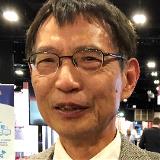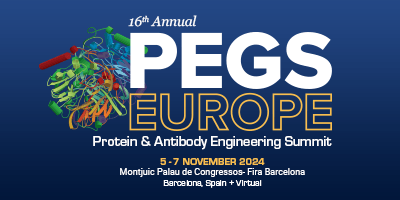
Cambridge Healthtech Institute的培訓研討會涵蓋了廣泛的學術理論及其背景,以及現實生活中的案例研究和所面臨的挑戰及適用的解決方案資訊。每個培訓研討會都結合了正式講座與互動討論和活動,以讓學習成果最大化。以熟練的講師來主持培訓研討會,以適用於目前研究的內容為焦點,提供針對在該領域的初學者重要的指南。
培訓研討會僅限面對面型式。
2024年11月5日(二) 08:25 - 18:35
TS7A: Introduction to Machine Learning for Biologics Design
INSTRUCTOR BIOGRAPHIES:
 Christopher R. Corbeil, PhD, Research Officer, Human Health Therapeutics, National Research Council Canada
Christopher R. Corbeil, PhD, Research Officer, Human Health Therapeutics, National Research Council Canada
TS8A: Introduction to Multispecific Antibodies: History, Engineering, and Application
Introduction to Multispecific Antibodies will be organized as an informative and practical guide to getting up to speed on critical aspects of multispecific antibody therapeutics. Topics will include historical successes, failures, and lessons learned. Specific practical instruction will span mechanisms of action, engineering, developability, regulatory considerations, and translational guidelines. Perspectives on ideal implementation of multispecifics as targeted and immunomodulatory approaches will be discussed.
Topics to be Covered:
- A brief history of bispecific antibodies: 60 years of progress with critical advances and key pioneers
- Multispecific applications and powerful mechanisms-of-action
- Engineering multispecific antibodies:100 formats and counting
- Multispecific-specific considerations in preclinical development and regulatory landscape
- Developability, manufacturing, and analytical considerations
- Clinical experience, translation, and regulatory approval
- Current trends and future opportunities in regulating immune checkpoints, cell-based therapies, and personalized approaches
INSTRUCTOR BIOGRAPHIES:
 G. Jonah Rainey, PhD, Senior Director, Protein Engineering, Eli Lilly and Company
G. Jonah Rainey, PhD, Senior Director, Protein Engineering, Eli Lilly and Company
TS9A: Current Applications of Host Expression Systems and Optimisation of the CEPA Workflow to Support Therapeutic Generation and Structural Biology
Topics to be Covered:
Review of host expression systems and their application
- Focus on eukaryotic expression systems
- Addressing bottlenecks in harvesting/purification
- Setting QC standards
Case Studies
- Difficult-to-express proteins
- Structural biology support
- Automation/Screening
- Scale-down/Scale-up
Agenda:
8:30 am Opening Remarks/Introductions
8:45 am Review of host expression systems and their applications
9:15 am Producing recombinant proteins in insect cells
10:30 am Coffee Break in the Exhibit Hall with Poster Viewing
11:15 am Transient and stable protein production in mammalian cells
12:45 pm Lunch
2:00 pm Implementing and Optimizing the CEPA Workflow
3:50 pm Refreshment Break in the Exhibit Hall with Poster Viewing
5:00 pm Case Studies (Difficult-to-express proteins, Structural biology support, Automation/Screening, Scale-down/Scale-up)
6:15 pm Closing remarks/Q&A
6:30 pm Close of Training Seminar
INSTRUCTOR BIOGRAPHIES:
 Richard Altman, MS, Field Application Scientist, Life Science Solutions, Thermo Fisher Scientific
Richard Altman, MS, Field Application Scientist, Life Science Solutions, Thermo Fisher Scientific
 Henry C. Chiou, PhD, Senior Director General Manager, Biosciences, Thermo Fisher Scientific
Henry C. Chiou, PhD, Senior Director General Manager, Biosciences, Thermo Fisher Scientific
 Dominic Esposito, PhD, Director, Protein Sciences, Frederick National Laboratory
Dominic Esposito, PhD, Director, Protein Sciences, Frederick National Laboratory
TS10A: Introduction to Analytical Characterisation and Method Validation for Biological Products
Topics to be covered:
1. The diverse modality of therapeutic biological products: protein, gene, and cell therapy products
2. Analytical procedure development (new ICH Q14 2024) and validation (new ICH Q2(R2) 2024)
3. Product Stability: developability, forced degradation, pre-formulation, and formulation development
4. Product strength methods: protein concentration, DNA concentration, and viable cell density
5. Product purity/impurities methods: capillary electrophoresis (CE-SDS NR/R, cIEF, icIEF) and HPLC (IEX, RP, SEC, HIC, HILIC)
6. Product potency methods: biological activity (binding ELISA, functional activity, and CBPA)
7. Product identity methods: peptide mapping, sequencing, icIEF, binding ELISA, FCM
8. Product safety: methods of process impurities and contaminants for product safety (HCP by ELISA and MS, residual DNA, leachable ligand, mycoplasma, bioburden, endotoxin, sterility, and RMM)
9. Aggregate and sub-visible particle analysis (AUC, SEC-MALS, DLS, LO, FIM, MFI) to address immunogenicity concern
10. Extended characterisation by mass spectroscopy (LC-MS), multi-attribute method (MAM), charge variant analysis (CVA), glycan profile (HILIC and site-specific), sialic acid, qPCR, biosensor (SPR, BLI), and HOS by biophysical characterisation (CD, FS, DSC, DSF, TEM)
Who should attend?
The curriculum provides a broad overview of biologics analytical and characterisation strategies. It is beneficial to individuals involved in biologics drug discovery, developability assessment, analytical development, formulation development, process development, DS/DP manufacturing, quality control, quality assurance, clinical supply, regulatory affairs, CMC project management, or related functional areas.
INSTRUCTOR BIOGRAPHIES:
 Kevin Zen, PhD, Senior Director, IGM Biosciences
Kevin Zen, PhD, Senior Director, IGM Biosciences
2024年11月6日(三) 08:25 - 19:45
TS9B: Label-Free Biosensor Tools in Biotherapeutic Discovery: SPR, BLI and KinExA
BINDING KINETICS
- Introducing binding kinetics and rate constants
- Working principle of SPR
- SPR best practices for generating high-quality kinetic data
EPITOPE BINNING
- Assay formats (tandem, premix and classical sandwich)
- Bin definition
- Throughput
- Nuanced binning (antigen heterogeneity, asymmetry, and displacement)
SOLUTION AFFINITY
- Introducing the solution affinity method and its need
- KinExA method and best practices
- Data analysis and interpretation
- Advanced applications (on-cell, and ultra-high affinities)
- Expanding throughput using plate-based methods (MSD and Gyrolab)
COMPLEMENTARY USE OF SURFACE & SOLUTION METHODS FOR AFFINITY DETERMINATIONS
- Case study from the literature
INSTRUCTOR BIOGRAPHIES:
 Yasmina Abdiche, PhD, Vice President, Exploratory Research, OmniAb Inc.
Yasmina Abdiche, PhD, Vice President, Exploratory Research, OmniAb Inc.
-jpg_77a600a5-dcf5-4ace-9868-f234d69de115_1f28730c-3326-4da0-8cba-ebf8657c7fb5.tmb-0.jpg) Palaniswami (Swami) Rathanaswami, PhD, CEO, PRSwami AbDev Inc.
Palaniswami (Swami) Rathanaswami, PhD, CEO, PRSwami AbDev Inc.
* 活動內容有可能不事先告知作更動及調整。







